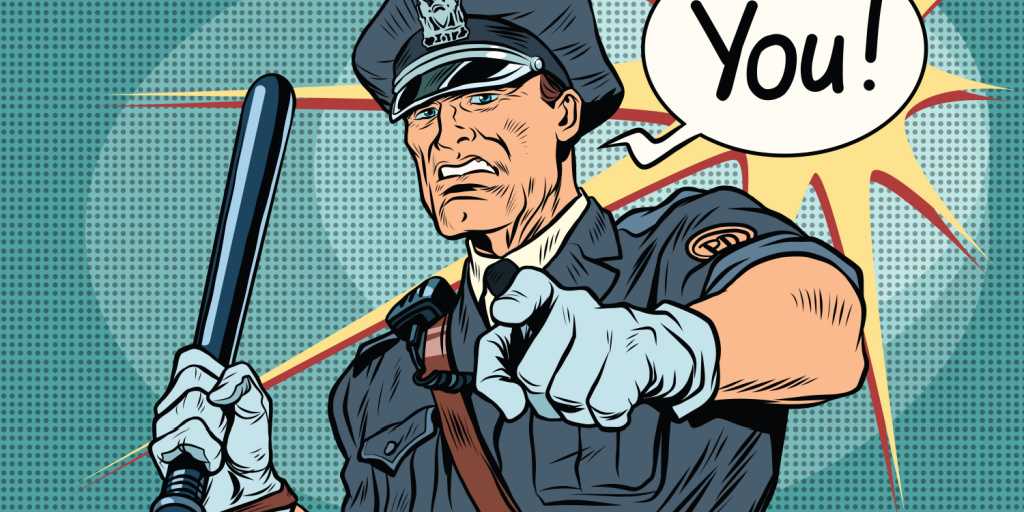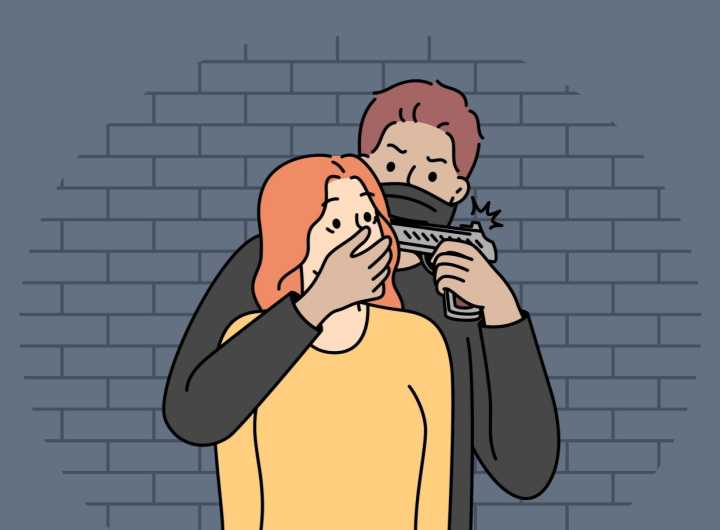When Does Offensive Conduct Cross the Line to Disorderly Conduct?
Almost any kind of intentionally loud and disruptive behavior could be construed as criminal disorderly conduct, and a disorderly conduct charge can happen to anyone who gets a bit rowdy, especially when alcohol is involved.
For example, last week, the news broke that NHL superstar and 2016 first-round draft pick Auston Matthews, of Scottsdale, Arizona, was charged with disorderly conduct for an incident that occurred back in May while he was visiting Arizona in the off-season.
Matthews was returning to his condominium with some friends at 2AM after a night of drinking. Someone in the group thought it would be funny to harass the complex security guard and pulled on the handle of the vehicle in which she was sitting. At first, the security guard was terrified that a group of men was trying to get into her vehicle. When she realized it was a prank, she got out of the vehicle and was rightfully was very angry with the men. As Matthews’ friends reportedly attempted to diffuse the situation, Matthews began walking away and then pulled down his pants, exposing his boxer shorts, and gestured by grabbing his backside. Of course, this was all captured on a security camera video that has not been released. Given the context of the incident, Matthews is probably fortunate that he and the other men were not charged with something more serious than disorderly conduct.
Surprisingly, Matthews thought he could keep the incident a secret from his employer, the Toronto Maple Leafs. Team management only found out about the incident through social media last week, and was not very happy to be caught off guard, as Matthews was short-listed for the open team captain position.
What is Disorderly Conduct?
Under A.R.S. § 13-2904 a person commits the crime of disorderly conduct if “with intent to disturb the peace or quiet of a neighborhood, family or person, or with knowledge of doing so, such person:
- Engages in fighting, violent or seriously disruptive behavior; or
- Makes unreasonable noise; or
- Uses abusive or offensive language or gestures to any person present in a manner likely to provoke immediate physical retaliation by such person; or
- Makes any protracted commotion, utterance or display with the intent to prevent the transaction of the business of a lawful meeting, gathering or procession; or
- Refuses to obey a lawful order to disperse issued to maintain public safety in dangerous proximity to a fire, a hazard or any other emergency; or
- Recklessly handles, displays or discharges a deadly weapon or dangerous instrument.
The first five examples are misdemeanors, while the last example is a Class 6 felony.
The Consequences of a Disorderly Conduct Conviction
Even though disorderly conduct is usually a misdemeanor, you should still consider it a serious charge that can have lasting repercussions. Disorderly conduct charges often occur when a person is intoxicated; therefore a potential employer or professional licensing board could be concerned that you abuse alcohol and worried about future liability or embarrassment.
If you are in law enforcement or seeking work in law enforcement, your employer may not want you in a position where you carry a firearm. If you are not a U.S. citizen, it could also affect your ability to visit, work, or study in the United States.
Basically, anyone who sees a disorderly conduct conviction on your criminal record might have concerns about your judgment and that you potentially abuse alcohol. Depending on the circumstances, they may have doubts that you would behave appropriately in the workplace or just make an assumption that you are an aggressive person who doesn’t get along with others.
On the other hand, there are plenty of individuals who are charged with disorderly conduct for fairly innocuous behavior. Disorderly conduct is also sometimes added on to other convictions when an officer is unsure as to whether an individual is guilty of a more serious crime. If you are facing a disorderly conduct charge, a criminal defense attorney can assess your individual situation, advocate on your behalf, and try to mitigate the collateral consequences that a disorderly conduct charge can have on your current or future employment and other areas of your life.
Recommended Articles

Arizona’s new sealing statute is a powerful way for people who have been charged or convicted of many common offenses, to be able to say “no” in many instances.

In Arizona, “Aggravated Assault” charged under ARS § 13-1204 is a Class Four Felony, and in some cases with mandatory prison.

DUI or domestic violence police misconduct even if not resulting in grievous misfortune can sometimes provide a helpful remedy for the criminally accused.

people are surprised by how outsized the consequences some misdemeanor convictions can be. collateral consequences—meaning all those hidden consequences.

For thirty years two federal laws prohibited all those convicted of misdemeanor domestic violence offenses from ever possessing firearms.

About Michael Harwin
Michael’s skill and experience have been recognized repeatedly. He holds an A-V 5/5 preeminent rating by Martindale Hubbell. He has been named one of the top lawyers in Arizona by Southwest Superlawyers, and one of the best lawyers in Tucson by Tucson Lifestyle Magazine. He also has been named one of the best lawyers in the United States by BestofUS.com , and given the highest rating possible by AVVO, 10/10 Superb. Amazon Books


